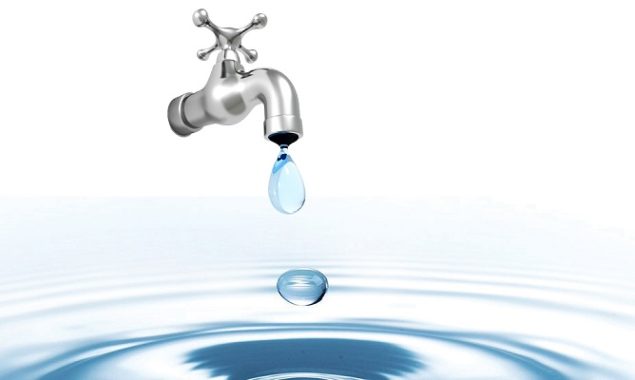Synopsis
A city deprived of its fair share of water pins hopes on the Greater Karachi Bulk Water Supply Scheme, commonly known as K-IV

KARACHI: In Karachi, people are often forced to buy water from private suppliers or depend on charities to deliver the vital ingredient of life. This has been taking a toll on residents who survive on meagre incomes.
There are a number of factors causing scarcity of water; one of these is the growing population, the other reasons being leakages and mismanagement.
Shaheen from Gulshan-e-Bihar area of Orangi Town has to order at least two tankers a month to meet the basic needs of her household of five people which costs her Rs5,000 per month.
“We hardly see our tap getting water from the lines to our houses. But the tankers which fill our household tanks fetch water from a hydrant a few metres away from our locality,” she says.
A few streets away, there is Al-Khizr Society in Orangi Town. Here Farhat Bibi says that people are helpless because no matter what the price is, people need water. “We spend more than half of our income in fulfilling our basic needs of water. We are buying water with the money we could have used to buy good food for our children. Education and other facilities never come up on our requirement list.”
Ideally, Karachi needs 1.1 billion gallons daily to supply water to roughly 20 million residents. Instead, it is only able to provide half of it ie 550 million gallons per day (MGD). The only other option for residents is to buy unfiltered water from private water tanker operators, who fill up a network of legal and illegal water hydrants across the city.

Most parts of the city are served by piped water direct to houses, but many residents — particularly in informal settlements — have to rely on water supplied from communal taps. Due to overcrowding, the water supply in many parts of the city is insufficient.
According to the World Health Organisation, human needs at a minimum of between 50 and 100 litres per person per day are required to ensure that the most basic needs are met.
Reportedly, Orangi Town residents get 67.7 litres per person per day. The disparity with the average water usage in other countries is staggering. In the US, people use 575 litres per person per day, in Australia it’s 493 litres and in Brazil it’s 187 litres. In neighbouring India, it is 135 litres per person per day and in China, it is 86 litres per person per day.
Hopes pinned on K-IV
In such a bleak scenario, Karachi’s residents are hoping for the completion of the Greater Karachi Bulk Water Supply Scheme, commonly known as K-IV, soon to resolve their water needs.
Prime Minister Imran Khan announced while inaugurating the Green Line bus project that work on K-IV will commence in January 2022 and will be completed in 15 months. And sufficient water to Karachi’s people from the Keenjhar pipeline will be available around August-September 2023.
Multiple causes have delayed its completion and increased the estimated cost from Rs25 billion to Rs150bn. The federal government has taken over the project from the provincial government.
The grand scheme
The K-IV project has been designed to provide 650 MDG to Karachi in three phases. The Karachi Water and Sewerage Board (KWSB) conducted a feasibility study limited to desk study in 2006-2007. Subsequently, K IV (Phase-I) 260 MGD was approved in 2014 by ECNEC to be executed through KWSB for an open-channel conveyance system with limited scope.
In 2015, Osmani and Company Limited (OCL) was awarded the design and supervision consultancy services contract and project execution to Frontier Works Organisation (FWO) by the Sindh government in March 2016. Unfortunately, progress of work remained slow up to December 2018 due to issues related to design and land acquisition and non-clearance of liabilities. In October 2020, the federal government handed over the responsibility of implementation of K-IV project to the Water and Power Development Authority (Wapda).
Wapda claimed to have completed the revised design of K-IV, and announced that the project would become operational within two years supplying additional 650 MGD to the metropolis.
Status of K-IV
Expressing satisfaction over the pace of progress, project director Aamir Mughal said that Wapda has completed revised design of the K-IV project in accordance with the timelines. “As soon as this project has been granted, Wapda awarded consultancy services contract to joint venture (JV) comprising of Techno Consult (lead firm), MM Pakistan (JV partner) and ILF consulting engineers-Austria (JV partner) and PES & ILF consulting engineers Pakistan as sub consultant to carry out the study.
“We completed the detailed designing in four months and submitted PC I in November 2021 as per timeline. PC I was approved by Executive Committee of the National Economic Council (ECNEC) on January 31,” he added.
The project director discussed the major milestones achieved so far and the plan to execute the project according to the timelines. Appreciating the efforts of Wapda chairperson Muzammil Hussain, he also said that due to his effort, we have been able to achieve our targets by now.
Major components
Sharing details about the major components of the project he further said, “It is 111 kilometres (km) long and the total length of the intake channel is 61km. There would be three pumping stations and three filtration plants. In its first phase, the scheme will ensure the supply of 250 MGD that would be sufficient for three to four years.”
We will complete the K-IV water supply project and will supply water to the city in bulk by the year 2023, he assured.
Mohammad Rehan Hashmi, a former member of the National Assembly (MNA) belonging to the Muttahida Qaumi Movement (MQM) reviewed the past of the project and said that the completion of K-IV in 2023 seems very difficult.
“Like other projects of Karachi, it will also be delayed.” Hashmi believed that the project was intentionally delayed and also demanded an inquiry into the unnecessary delay.
Suddenly, the land dispute arose on the part through which the channel of canals had to go through, the former MNA asserted. “Why was it not taken into consideration while it was being passed from ECNEC? It was actually an abduction of the project.”
The former lawmaker blamed the Sindh government for the current situation in Karachi and also said, “Immense growth rate, an unmanaged population and the rapid urbanisation made it much harder to meet the people’s basic requirements such as water. After the 18th Amendment, it was the provincial government’s responsibility to ensure availability of water to the people. But the Sindh government has always been ignorant of the needs of the people.”
Nevertheless, in the tenure of Pakistan Muslim League-Nawaz, we stressed upon the need of the K-IV project on the floor of the assembly and finally, the federal government at the time agreed to participate equally in terms of finance, he claimed. “However, unfortunately like other projects of Karachi, this too has got no importance.”
He also highlighted that after two years, the city’s population will grow multiplying the figure where the requirement of water is concerned, which will mean the scarcity will remain. “Unfortunately, the fate of Karachi is being decided by the people who are neither elected nor even residents of the city. Consequently the issue of water crisis, heaps of garbage, education and health facilities will never be solved.”
Read More News On
Catch all the Pakistan News, Breaking News Event and Latest News Updates on The BOL News
Download The BOL News App to get the Daily News Update & Follow us on Google News.




